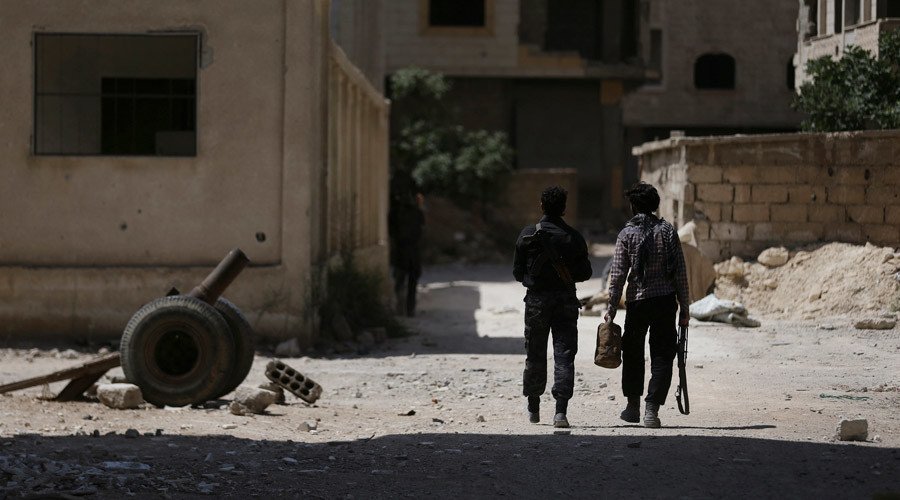
Islamic State has a branch devoted to creating chemical weapons, AP reports, citing Iraqi and US officials. Earlier, French Prime Minister Manuel Valls also warned that Islamic State could potentially use chemical or biological weapons in its attacks.
A special branch has been set up by Islamic State to develop chemical weapon for the terrorist group using scientists from Iraq and Syria as well as other countries in the region, AP reported, citing Iraqi and US intelligence sources.
Although Islamic State has already used mustard gas on the battlefield, US intelligence agencies are skeptical about the terrorists’ capabilities to produce sophisticated chemical weapons suited for a potential terrorist attack.
At the same time, Iraqi officials warned that control over vast territories in Iraq and Syria gives the militants many opportunities for experiments, leaving Iraq’s forces largely unaware of the Islamic State actions.
"They [Islamic State] now have complete freedom to select locations for their labs and production sites and have a wide range of experts, both civilians and military, to aid them," a senior Iraqi intelligence official told AP.
Fearing that Islamic State could use chemical weapons, Iraqi forces have started distributing gas masks and protection suits to troops stationed west and north of Baghdad. Twenty-five percent of troops have been provided with masks so far, AP reports, citing a senior officer in Salahuddin province, north of Baghdad.
Additionally, Russia has supplied Iraqi forces with 1,000 protective suits against chemical attacks, Hakim al-Zamili, the head of the Iraqi parliament's security and defense committee, told AP.
The militants have managed to involve experts from different countries in their chemical weapons project, including specialists from Chechnya and Southeast Asia as well as members of Saddam Hussein’s now-dissolved Military Industrialization Authority, al-Zamili added.
"Daesh [ISIS] is working very seriously to reach production of chemical weapons, particularly nerve gas," al-Zamili said, using an Arabic acronym for the group. "That would threaten not just Iraq but the whole world."
US and European officials have repeatedly claimed that Islamic State is incapable of producing chemical weapons due to a lack of resources and technology, stressing that it has only managed to produce mustard gas so far - but only of low quality and in small quantities.
However, retired Lt. Gen. Richard Zahner, a former top US military intelligence officer now leading the NSA electronic surveillance arm, emphasized that the US has consistently underestimated the idea Islamic State that could possibly develop a “limited” chemical weapon program.
"Even a few competent scientists and engineers, given the right motivation and a few material resources, can produce hazardous industrial and weapons-specific chemicals in limited quantities," Zahner told AP.
Comments
Post a Comment